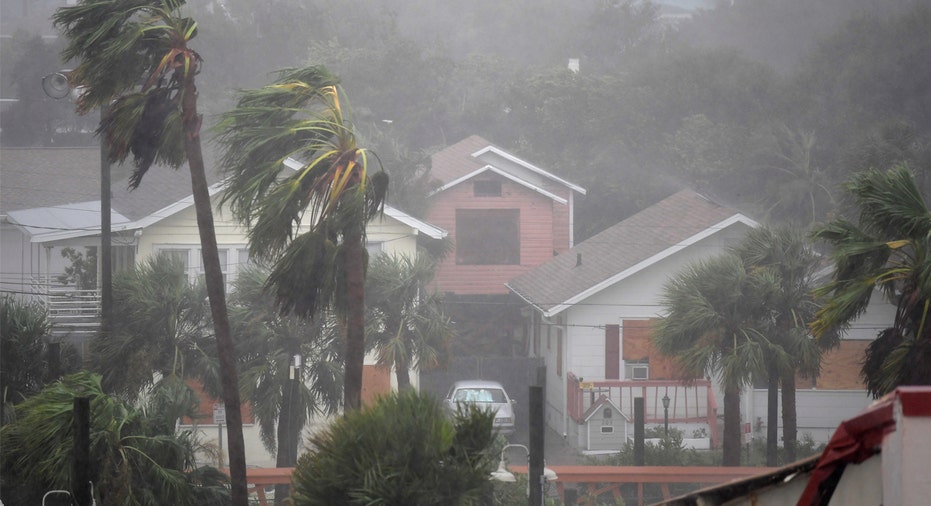Hurricane Matthew Heads For the Carolinas

JACKSONVILLE, Fla./PORT-AU-PRINCE, Haiti, Oct 8 (Reuters) - H urricane Matthew's winds diminished on Saturday as it headed towards the Carolinas after killing almost 900 people in Haiti and causing major flooding and widespread power outages in the southeastern United States.
As winds dropped to less than 85 miles per hour (135 kph), making it a Category 1 hurricane on the Saffir-Simpson scale of 1 to 5, the storm was about 20 miles (35 km) south-southeast of Charleston, South Carolina, according to the U.S. National Hurricane Center. It was moving northeast at 12 miles per hour (19 kph).
The number of deaths in Haiti, the poorest country in the Americas, jumped to at least 877 on Friday as information trickled in from remote areas previously cut off by the storm, according to a Reuters tally of tolls from officials.
Matthew rampaged through Haiti's western peninsula on Tuesday with 145 mph (233 kph) winds and torrential rain. Some 61,500 people were in shelters, officials said, after the storm hurled the sea into fragile coastal villages, some of which were only now being contacted.
At least three towns in the hills and coast of Haiti's fertile western tip reported dozens of people killed, including the farming village of Chantal whose mayor said 86 people died, mostly when trees crushed houses. He said 20 others were missing.
"A tree fell on the house and flattened it. The entire house fell on us. I couldn't get out," said 27-year-old driver Jean-Pierre Jean-Donald.
"People came to lift the rubble, and then we saw my wife who had died in the same spot," said Jean-Donald, who had been married for only a year. His young daughter stood by his side, crying "Mommy."
With cellphone networks down and roads flooded, aid has been slow to reach hard-hit areas. Food was scarce and at least seven people died of cholera, likely because of flood water mixing with sewage.
The Mesa Verde, a U.S. Navy amphibious transport dock ship, was en route to Haiti to support relief efforts. The ship has heavy-lift helicopters, bulldozers, fresh-water delivery vehicles and two surgical operating rooms.
FOUR KILLED IN FLORIDA
The NHC predicted the storm would possibly be striking the U.S. coast on Saturday morning or afternoon.
"Regardless of whether or not the center makes landfall, hurricane-force winds in the northern eyewall will lash much of the coast of South Carolina," an NHC advisory said.
Matthew sideswiped Florida's coast with winds of up to 120 mph (195 kph) but did not make landfall there.
There were at least four storm-related deaths in Florida but no immediate reports of significant damage in cities and towns where Matthew swamped streets, toppled trees and knocked out power to about 1 million households and businesses.
Governors in several states were expected to give news conferences on Saturday morning.
About 450,000 were without power in Georgia and South Carolina on Saturday, utility companies said.
In Florida, two people were killed by falling trees and an elderly couple died of carbon monoxide poisoning from a generator while sheltering from the storm.
Hurricane and flash flood warnings extended through Georgia and South Carolina and into North Carolina early on Saturday.
Forecasters warned of flooding as 15 inches (40 cm) of rain were expected to fall in parts of the region along with massive storm surges and high tides.
Several major roadways were inundated in Charleston, South Carolina, local media reported.
Standing water closed both directions of Interstate 95 highway in Georgia. Some 8 inches (20 cm) of rain had fallen in the Savannah, Georgia area where Matthew downed trees and caused flooding.
Though gradually weakening, Matthew - which triggered mass evacuations along the U.S. coast - was forecast to remain a hurricane until it begins moving away from the U.S. Southeast coast on Sunday, according to the NHC.
President Barack Obama and officials urged people to heed safety instructions. Coastal residents were warned that storm surges could still flood neighborhoods even as Matthew departs the region.
(Reporting by Brendan O'Brien in Milwaukee, Susan Heavey, Eric Walsh and Doina Chiacu in Washington, Gabriel Stargardter in Miami, Zachary Goelman in Orlando, Fla., Zachary Fagenson in Wellington, Fla., Irene Klotz in Portland, Maine, Laila Kearney in New York and Colleen Jenkins in Winston-Salem, N.C.; Writing by Tom Brown; Editing by John Stonestreet and James Dalgleish)



















